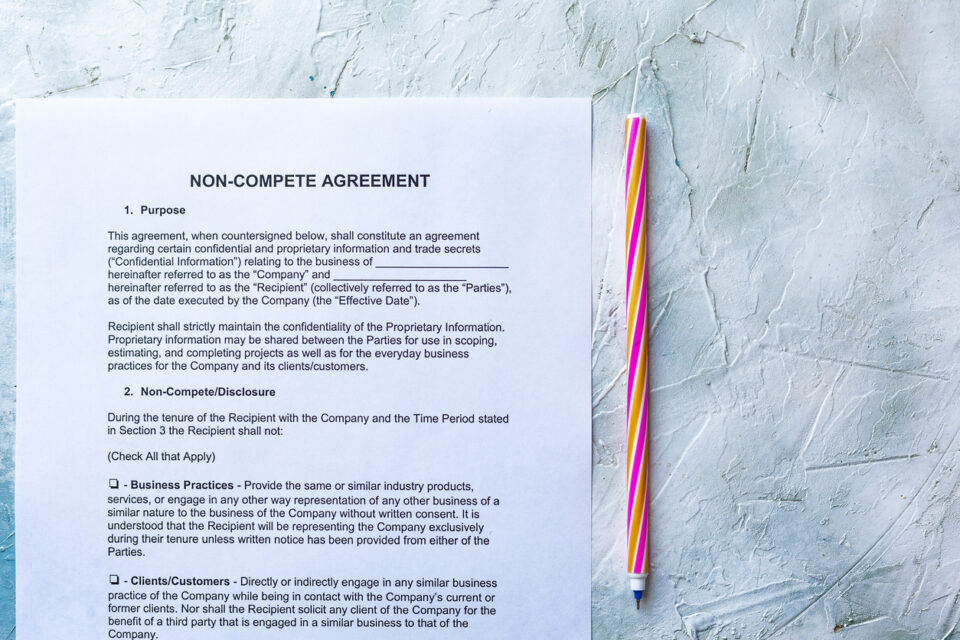Addressing Restrictive Covenants in an Accounting Firm Partnership Agreement

Posted with permission from the September 19, 2019 issue of Accounting Today.
Restrictive covenants are the prenuptial agreements of the accounting world. But while many on the employee side tend to view them as impediments, they are necessary for the protection of the firm. In this article, I’ll discuss not only how having these key provisions in your partnership agreement provides protection, but also how adding these covenants go a long way toward creating goodwill within your accounting firm.
Restrictive covenants, also commonly referred to as non-competes and non-solicits, place restrictions on what partners can do, who they can contact to generate new business and the market where they can compete should they leave the firm. The restrictions laid out in this document can last anywhere from two to five years (or longer) depending on the state.
While restrictive covenants are often interchangeably referred to as non-competes, having a pure non-compete agreement is generally not recommended because it is challenging to enforce. Many courts view non-competes as unnecessary to protecting the business interests of the firm. It is easier for a court to enforce something when a judge thinks it is reasonable, and true non-competes are often viewed as unreasonable. Depending on your market, there may be exceptions. For example, I had a client who had developed proprietary tools and a large market share in a particular industry. Having a non-compete that specified a geographic area and that industry made sense for that client.
Classes of partners
It has become more common over the years for accounting firms to have classes of partners, with most making the distinction between income and equity partners. As owners of the business, equity partners are more likely to be bound by provisions within a partnership agreement and to have client and referral relationships that are significant to the firm. Therefore, in many instances, restrictive covenants for equity partners are given less scrutiny than those for income partners. Restrictive covenants are generally more enforceable and for longer periods on the sale of a partnership interest itself.
It is recommended that income partners sign a separate agreement and not the partnership agreement. This leads to a cleaner delineation of the positions, which is important when drafting a non-compete that will hold up in court. Some firms also have different restrictions for different classes of equity partners.
Restrictions on client, employee and referral source solicitation
Client non-solicits are the most critical for obvious reasons. Typically, the non-solicit will cover all types of clients, from long-term to recent prior clients. These restrictions will often provide for loss of retirement benefits if violated, in addition to injunctive remedies and liquidated damages. The period may vary depending on the state involved, but even in states that may not allow for a long period on a restriction, I try to provide for a forfeiture of retirement benefits during the entire time retirement benefits are payable. I also often include a provision requiring departed partners to pay for any uncollected receivables from clients that go with the departed partner.
A restrictive covenant should include provisions on employee solicitation as well. Should a partner leave, you want protections and assurances that they cannot poach from the firm’s staff without facing consequences. Important considerations when drafting this section include defining which employees they are prohibited from soliciting, making clear that the restriction applies to partners soliciting other partners, and providing damages for violations.
In addition to a restriction on employee solicitation, a restriction on solicitation of referral sources is usually appropriate. For many accountants, referral sources are as important as the clients themselves. This is particularly true in certain practice areas, like litigation support. Referral source non-solicits may be harder to enforce, especially in certain states, but in most cases are still a worthwhile addition.
Liquidated damages provisions
Even if you have all of your ducks in a row, breaches can still occur. That’s why your agreement should include a liquidated damages provision for restrictive covenant breaches. In other words, the partnership agreement describes how damages will be determined if a partner leaves and takes clients or employees.
This makes sense because in most cases if a client wants to follow a partner, the old firm will not retain that client anyway. Typically, I recommend liquidated damages in the range of 125 to 150 percent of the client’s billings. A high percentage is more likely to be viewed as a “penalty” rather than as an approximation of damages and thus not be enforced by the court. Additionally, the partnership agreement should make the former partner responsible for the unpaid receivables of any client taken. Regarding poached employees, liquidated damages are usually in the range of 50 to 75 percent of annual compensation.
No accounting firm can know for certain how long a partner will stay with the firm, but you can count on the fact that partners do leave. Knowing this, firms should prepare for that inevitability. Firms can be protected from such an event by having a strong, well-thought-out restrictive covenant in place.
By addressing the markets that a partner can and cannot pursue, the clients, staff and referral sources that are off-limits, and what should happen if the terms of the agreement are violated, a firm can protect itself and its partnership. Firms that have drafted reasonable and clear restrictive covenants have a better chance of succeeding in court should that be necessary. Of course, you hope it never comes to this, but just like a fiancé signing a prenuptial agreement, it’s smart to prepare for all possibilities.
Want to learn more? Click here to view our collection of resources for accounting firms and the people who run them.
Filed under: Accounting Firms, Corporate
Related insights
June 25, 2025
Independent Sponsor Series: Ryan Sullivan of North Park Group Discusses the M&A Outlook and Offers Advice to Business Owners and Independent Sponsors (Part Two)
Read MoreJune 24, 2025